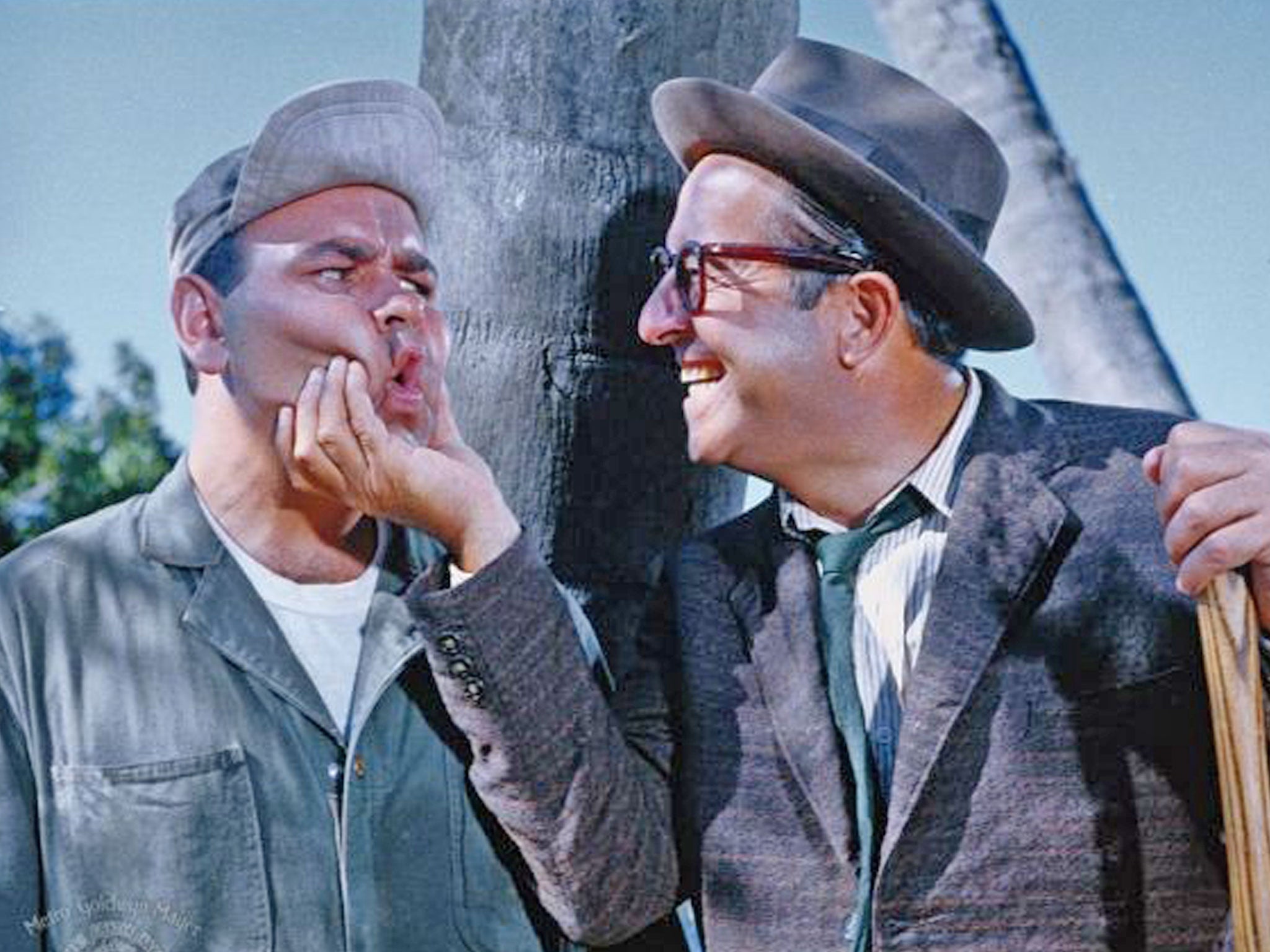
When it comes to writing teams, women often get left out of history. Lately the role of Alma Reville has become acknowledged in the creation of Hitchcock's films, but it set me thinking: who else has been overlooked?
William Rose wrote the scripts of Genevieve, The Ladykillers and Guess Who's Coming to Dinner, for which he won an Oscar, as well as The Russians Are Coming, The Russians Are Coming, which strongly influenced Steven Spielberg's 1941. His wife, Tania, wrote the grittier Ealing film Touch And Go, about a furniture designer stifled in post-war Britain who attempts to emigrate to Australia (a very topical subject in 1955), but she also co-wrote a screenplay on a more epic scale.
It's A Mad, Mad, Mad, Mad World now counts as little more than a footnote in the history of extravagant comedies. Filmed on a sprawling Cinerama canvas, it showcased the talents of the largest cast of comedians ever assembled on film, boasting roles for Sid Caesar, Milton Berle, Spencer Tracy, Terry-Thomas, Ethel Merman, Mickey Rooney, Phil Silvers, Peter Falk, Jimmy Durante, Jerry Lewis, Jack Benny, the Three Stooges, ZaSu Pitts, Buster Keaton and many others. In order to marshal this vast, shrill, chase-to-end-all-chases into something coherent, Tania Rose worked with her husband to create a complex backstory to the characters, showing how their obsession with the American dream ultimately proved their undoing. The original 70mm roadshow version (complete with intermission) ran for 192 minutes, but was quickly hacked down to a slightly more manageable 186 minutes after exhibitors complained they were losing shows. It was then cut again, to 154 minutes. Out went most of Tania Rose's work on the backstories, along with the filleting of a more cynical subplot. Virtually every dialogue scene lost its sharp edges, until the film became one long, high-pitched, slapstick free-for-all. Much of the cut footage was irretrievably lost.
In 1990, Tania Rose told me that although writing the movie was one of the happiest times of her life, it eventually affected her marriage. She did not continue in the film industry. Instead, at the age of 68 she got a PhD and began writing a study on political censorship in Britain during the First World War. A partially extended cut of her magnum opus eventually surfaced to reveal a darker, wittier satire about selfishness and greed, but it can never again be screened in its complete form. An unpublished script exists.
Subscribe to Independent Premium to bookmark this article
Want to bookmark your favourite articles and stories to read or reference later? Start your Independent Premium subscription today.

Join our commenting forum
Join thought-provoking conversations, follow other Independent readers and see their replies